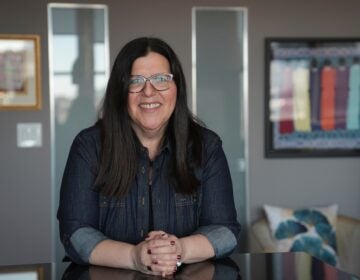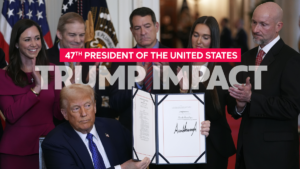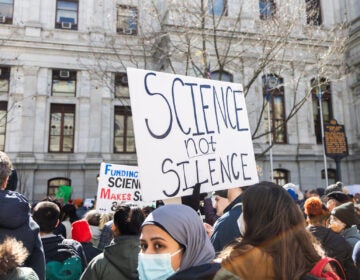In light of Trump’s anti-‘DEI’ order and funding instability, Philly-area scientists question their future in the U.S.
One researcher described it as a “particularly insidious way” to stymie the work of U.S. scientists.
Listen 2:44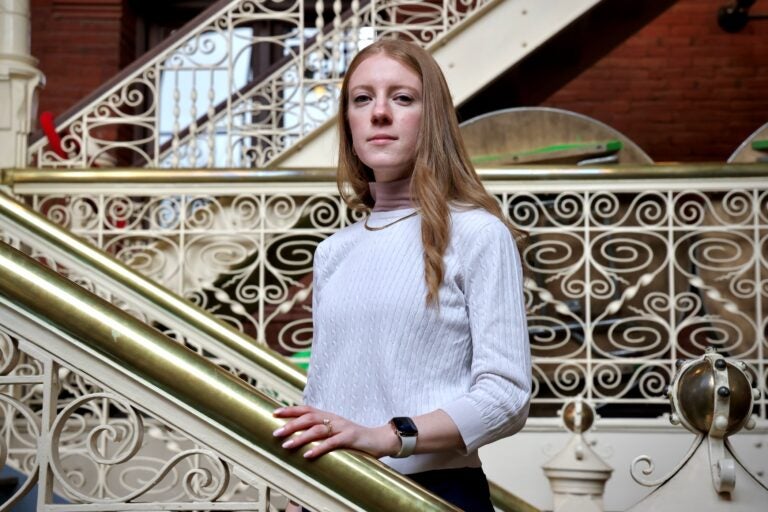
Zoe Ovans is a postdoctoral research fellow at the University of Pennsylvania with National Science Foundation grant funding. (Emma Lee/WHYY)
From Philly and the Pa. suburbs to South Jersey and Delaware, what would you like WHYY News to cover? Let us know!
Psychologist Zoe Ovans studies how young children learn language at the University of Pennsylvania, with funding from a prestigious fellowship from the National Science Foundation.
In late January, she and more than 100 early career scientists around the country found out that they could no longer access their research funding, which had already been approved.
“Part of what makes it so scary is that there’s no precedent for this,” she said, pointing out that when there were impending government shutdowns, the National Science Foundation would still contact researchers to speed up the process and make sure no one did not have the funds to continue their research. “The fact that they didn’t do that this time was maybe doubly concerning because it … seemed like they were really powerless to control their own funding.”
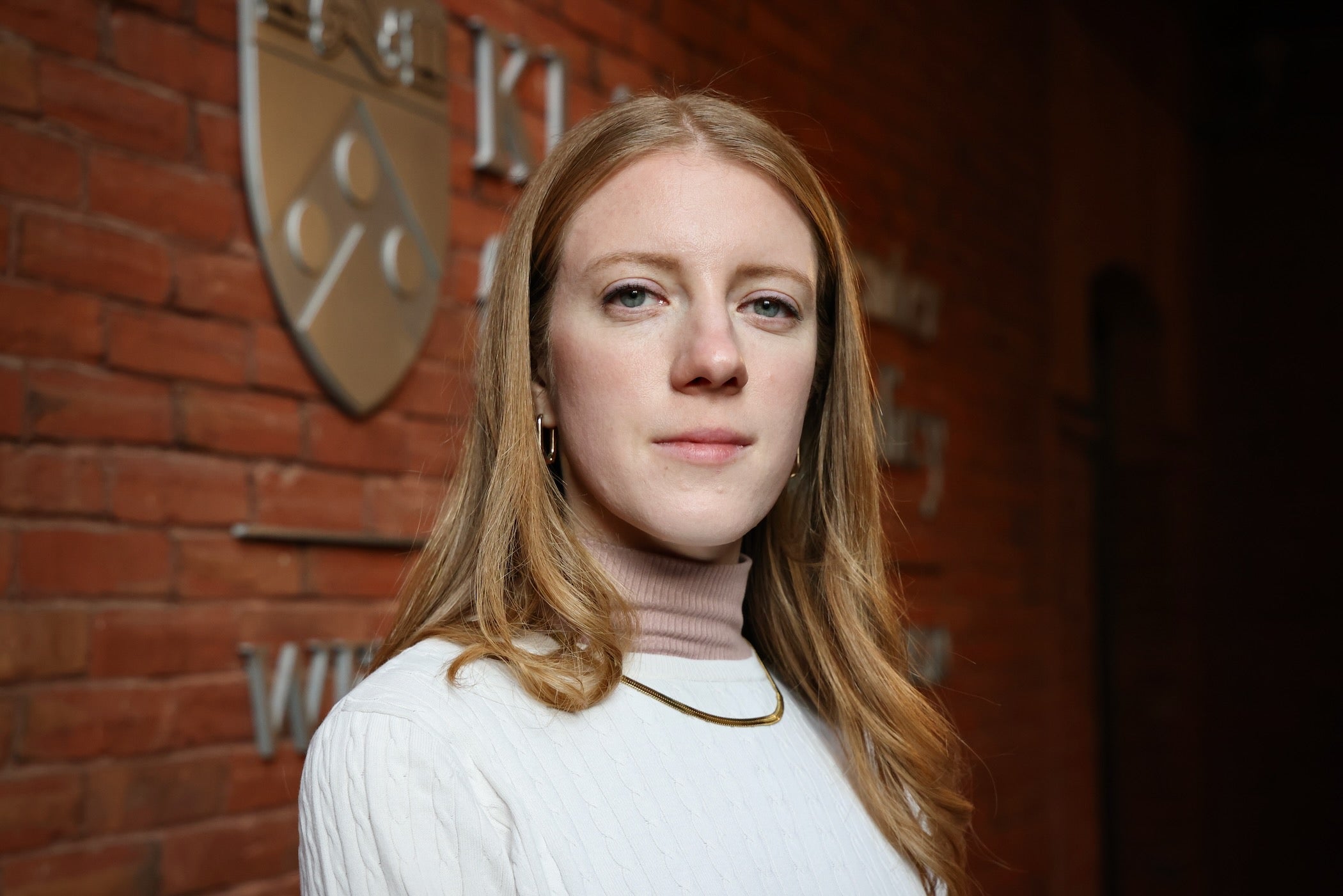
One of President Donald Trump’s many executive orders targeted anything that could be labeled as “diversity, equity, and inclusion.” In response to this, in late January, the National Science Foundation suddenly cut off access to research funds for early-career scientists on postdoctoral fellowships, meaning they are doing research after receiving their PhDs.
The NSF said it needed to review all the research to make sure they would comply with the executive order, despite the fact that the research grants had already been reviewed and approved. A court issued a restraining order against the Trump administration, and the NSF allowed Ovans and other scientists to access their research funding again, but the review of grants continues.
A spokesperson for the National Science Foundation declined requests for interviews, and referred to a frequently asked questions page on the NSF website.
This whole debacle led Ovans and other early-career scientists in the Philadelphia region and around the country to wonder: Is the United States still a stable place to do academic research?
“For myself, I’ve already sort of decided to apply for industry positions instead. This really made me decide maybe that is the more stable way to go,” she said. “Normally … you get a grant and it’s for two years and you celebrate and you think, ‘Great, I’m good for two years.’ And now, I think everyone’s rethinking that — they could just take it away with no notice.”
Christopher Large, an evolutionary genomicist at the University of Pennsylvania who studies how DNA changes over time, is also on a postdoctoral fellowship funded by the NSF. He said faculty research jobs at universities are already scarce, and the chaos could lead to a loss of scientists from the U.S.
“So few people that actually get PhDs are able to go on to get faculty positions,” Large said. “But I think this has made them become probably even more scarce, at least in the near future, and potentially opens up the possibilities of a lot of … American postdocs looking abroad to places like Europe.”
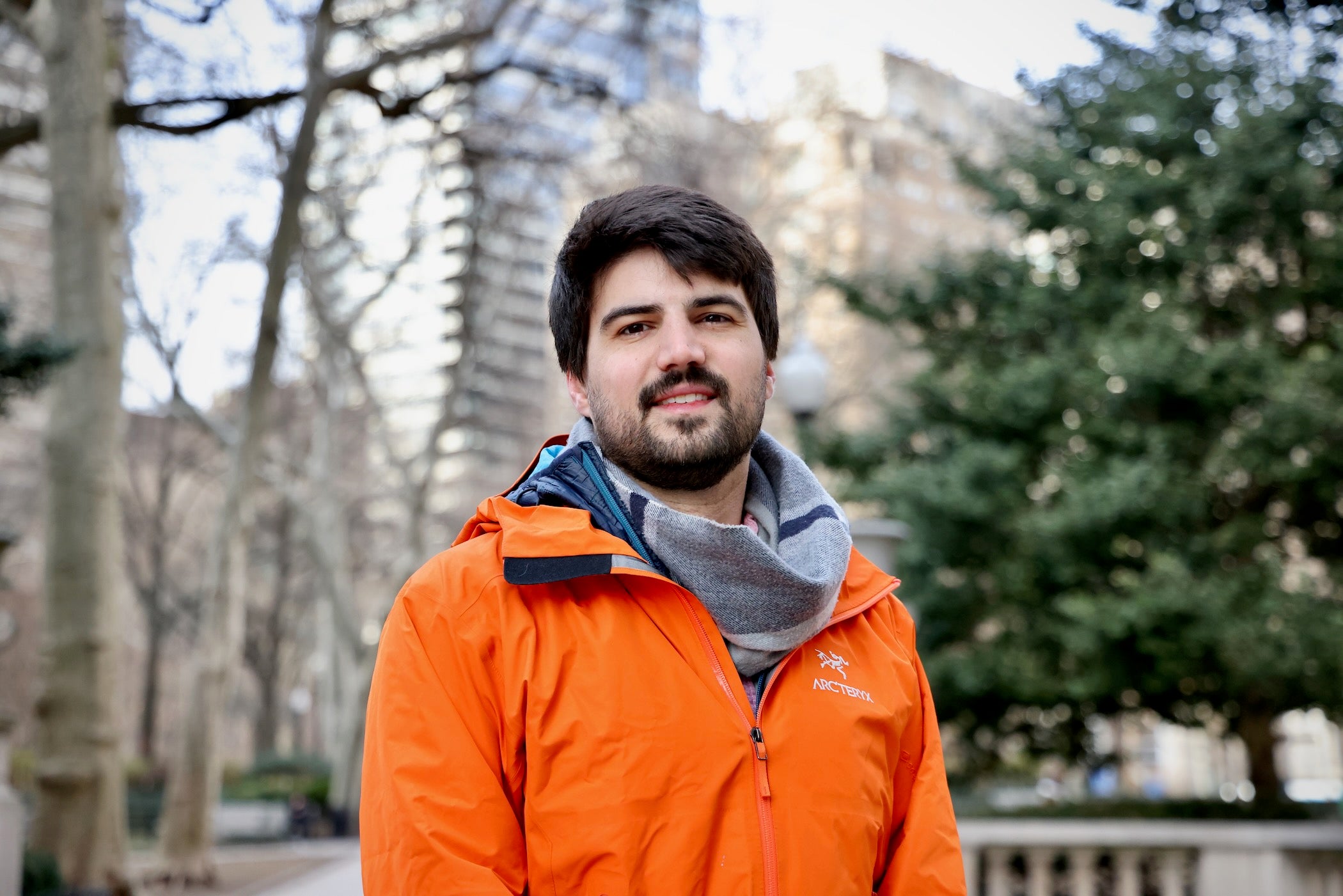
Bezia Lemma, a postdoctoral researcher at the chemical and biological engineering department at Princeton University, said that instead of doing his research on what happens when baby organisms develop from embryos, he had to spend a week talking to other researchers, reporters and lawyers about whether this research would violate Trump’s executive order.
“One wants to just ignore this and focus on important research. And I’ve got a newborn baby and a terrific project which I’m wrapping up. But to another extent, you’re not really allowed to ignore it,” Lemma said. “Many of us have families. And so small fluctuations in funding are quite serious. We’re still young enough to have financial instability, but we’re old enough to really have some career mobility and … be making major … scientific breakthroughs.”
He said even though the NSF has restored access to the research funding, it is still reviewing all grants to see if they comply with the executive order against “diversity, equity, and inclusion,” and he does not know if it will take days, weeks or months.
“It’s … unclear to me what was intended here, right? This is a particularly insidious way to cause … American scientists to just leave a tremendous amount of American scientific advances on the table,” Lemma said.
He said that while he and other early career American scientists are worrying about whether they still have jobs, their counterparts in other countries can keep doing research and discuss their progress.
Scientists also wonder how the executive order against “diversity, equity, and inclusion” will work, when current U.S. law requires the National Science Foundation to consider whether a research project will, in part, expand “participation of women and individuals from underrepresented groups.”
When the NSF decides whether to fund a project or not, it has considered what is called the “broader impact” of research going back many decades. Nature has reported that now, phrases like “broadening participation” or “women” or “people of color” would lead to a grant being flagged.
Cultural anthropologist and NSF postdoctoral research fellow Julia Barnes, who lives in Pennsylvania but is affiliated with the University of Tennessee, Knoxville, said she does not see how the field of cultural anthropology will survive with this kind of screening criteria, when one of the goals of the field is “to make the world safe for human differences.”
“All of these phrases make, essentially, anthropology, cultural anthropology impossible to do because it is the study of cultural difference and advocacy and power imbalances and it fits with the NSF statutory mission quite well. At least it has up until this point,” Barnes said. “Science should serve everyone. And I’m studying how to best make that happen … But that’s exactly what it seems that they’re trying to cut right now.”
Anthropologist Susanna Fioratta, who directs the Center for Social Sciences at Bryn Mawr College, said that the reported list of flagged terms has serious implications for any field of study that relates to human experience.
“I see this as an attempt to limit the scope of research to a falsely narrow conception of what it means to be human,” she wrote in an email.

Get daily updates from WHYY News!
WHYY is your source for fact-based, in-depth journalism and information. As a nonprofit organization, we rely on financial support from readers like you. Please give today.



